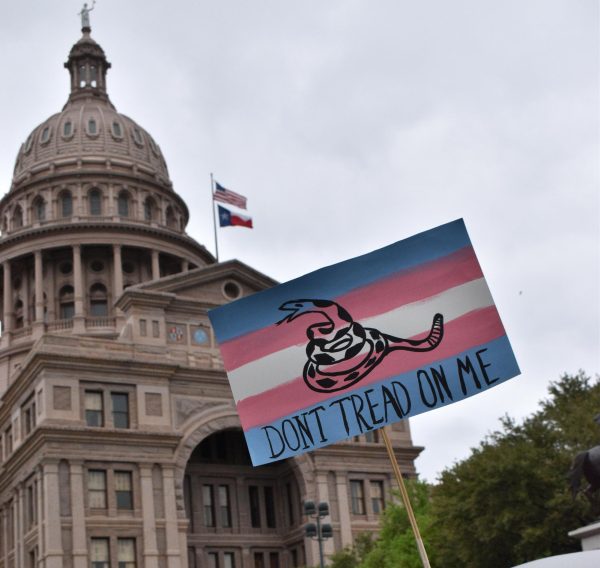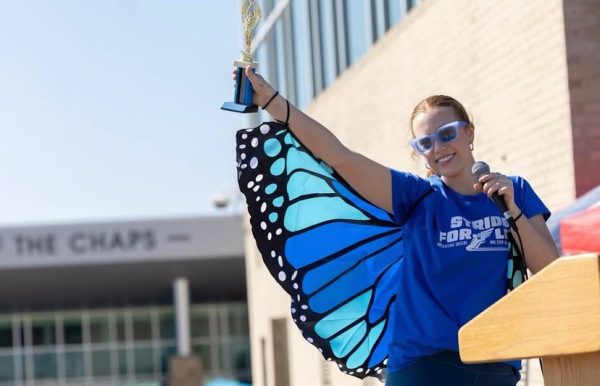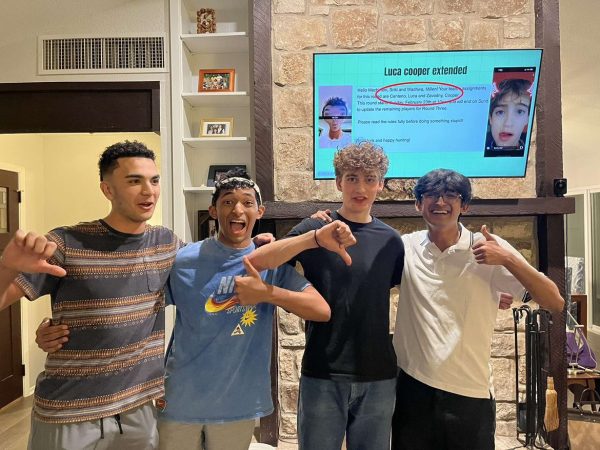Members of community work to deal with COVID-19 outbreak
The Coronavirus (COVID-19) is a pressing and prevalent issue that has dominated global headlines in the past couple of weeks. It has closed schools, canceled travel plans and quarantined entire countries. The rapid spread of the virus has alarmed many, and impacted most students in the U.S. due to multiple canceled school-related events. Understanding the virus and especially the impact it will have on Eanes schools is crucial. A few members of the Featherduster staff interviewed members of the Westlake community to collect their thoughts on the outbreak and how they plan to cope.
The following is an interview conducted by Luke Wadsworth with Assistant Principal Paul Cooley.
Q: If school closes and we use up all of our snow days, will it extend the school year?
A: Well, I think that’s going to be a state decision. That’s not something we know right now, but I would imagine with as many things and schools that would be affected that they would have to offer some type of option. I think also with so many people’s travel plans already being made for the summer it would be difficult for them to force everybody to extend the school year, but I’m not sure so I’m just guessing.
Q: what steps will you take if school closes?
A: Well this is all very new so we’re exploring a lot of different options. I know that online is something that several people are looking into. We want to make sure you’re getting the best education possible. So I don’t know exactly what that looks like, but I think with teachers already using Google Classroom, I don’t know that it would be as difficult for us to go online, as it would be for some others.
Q: What preventative measures are already in place at school to prevent the spread of COVID-19?
A: So, we have had some outside companies come in at night, and clean, disinfect. I know that our custodians are working hard. You know, we’ve got hand sanitizer out and around, put up signs encouraging people to cover their coughs, wash their hands, And so I’m sure you’re seeing these. I mean there’s just a constant reminder. So, those types of things.
The following is an interview conducted by Nathan Laude with Pre-AP and AP Biology teacher Eric Martin.
Q: What exactly is the COVID-19?
COVID-19 or the coronavirus is a virus, which means that it’s not alive. COVID-19 is a single strand of RNA which is microscopically small. It works by going inside of your body through sneezes and cough. Once it’s inside your body, it teaches your cells how to make more viruses, and once the cells get infected, they make more infected cells and it exponentially spreads. Once the duplication of the coronavirus in your body gets to an extreme, it eventually kills the cell.
Q: How does it spread and how can we prevent it?
Its airborne, which means that it spreads when people cough or sneeze. The reason it’s so contagious is that it’s so small. Sizewise, the COVID-19 is microscopic; even smaller than any of your cells. It’s super tiny and it’s in the air, so when you breathe it, it gets into your lungs and eventually into your cells. Besides from direct coughing or sneezing, there’s not much risk in transmitting it. You don’t have to be worried about it being on surfaces that you touch, but if it’s on surfaces that you touch, and then touch your face without washing your hands, you can get the virus.
Q: Should we really be as worried about it? How deadly is it?
Think of it like the flu, but stronger. While the flu probably won’t kill you, it could possibly kill some people. Will coronavirus kill you, no. Could it? Maybe, but probably not. The people who are most affected by the coronavirus are old people and people with weakened immune systems. People with diseases like HIV or autonomic diseases where their body fights itself, are in more danger to coronavirus. For a young and healthy teen in high school, the chance of dying is very very low. While it’s serious, you should be more worried about your parents as they’re a lot more likely to be hurt. The difference between this and the flu, is that it’s spread so easily. To protect yourself from the Coronavirus you should avoid crowded places. How do you avoid air? You don’t go near it.
Q: Do gas masks really protect you?
No. Gas masks will do very little if not nothing at all to protect you from the COVID-19. The only situation where you should wear a gas mask is if you’re already sick. If you cough, a lot of the fluid hits the mask and stops. But if two people are healthy, there’s no point in wearing gas masks. The reason is that the COVID-19 virus is so small that it gets around the corners of the mask. The most popular masks block about 95% airborne illnesses that are 11.5-20.5 micrometers in diameters. The coronavirus is WAY smaller than that, and with only a fraction of the size, It will enter through the masks openings anyways.
Q: How should the government respond to it?
I don’t know what exactly they should do, but they should at least treat it as a real threat. They need to make testing free and available to everyone, because people could have COVID-19 right now and don’t know it. COVID-19 has a long incubation period; there’s a pretty long gap of time in between you getting the virus and you showing symptoms. Free tests are important because the problem isn’t you getting sick, it’s about you giving it to other people that are more susceptible to being hurt by it.
The following is an interview conducted by Lara Murray Palma with senior Sam Wadsworth after the lacrosse team’s trip to Maryland was canceled due to Coronavirus concerns.
Q: How have you been impacted by COVID-19?
A: Me and my team were set to fly up to Maryland to get the opportunity to play against two of the best lacrosse teams in the nation, but it was unfortunately canceled because of the risk of getting stuck in Maryland. Also, if [COVID-19] does continue to spread, the rest of our season is at risk of getting canceled which would be devastating as we have a high chance of playing in our first state championship in school history this year.
Q: How do you feel your friends/Westlake community has been impacted by it?
A: Most of my friends were impacted in the same way, as they are all on the lacrosse team as well. Also, some people are already canceling their spring break trips which is very unfortunate.
Q: What are your concerns about the virus?
A: My main concerns are that at this rate it could definitely affect school which would be a huge [problem], and it could put older family members at high risk, which is very scary.
Q: Have you or your family taken any preventative measures to protect against COVID-19?
A: As of now, other than washing our hands more we haven’t done much.





